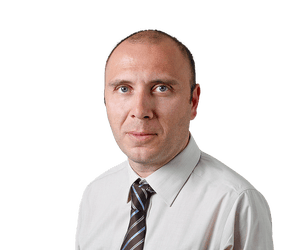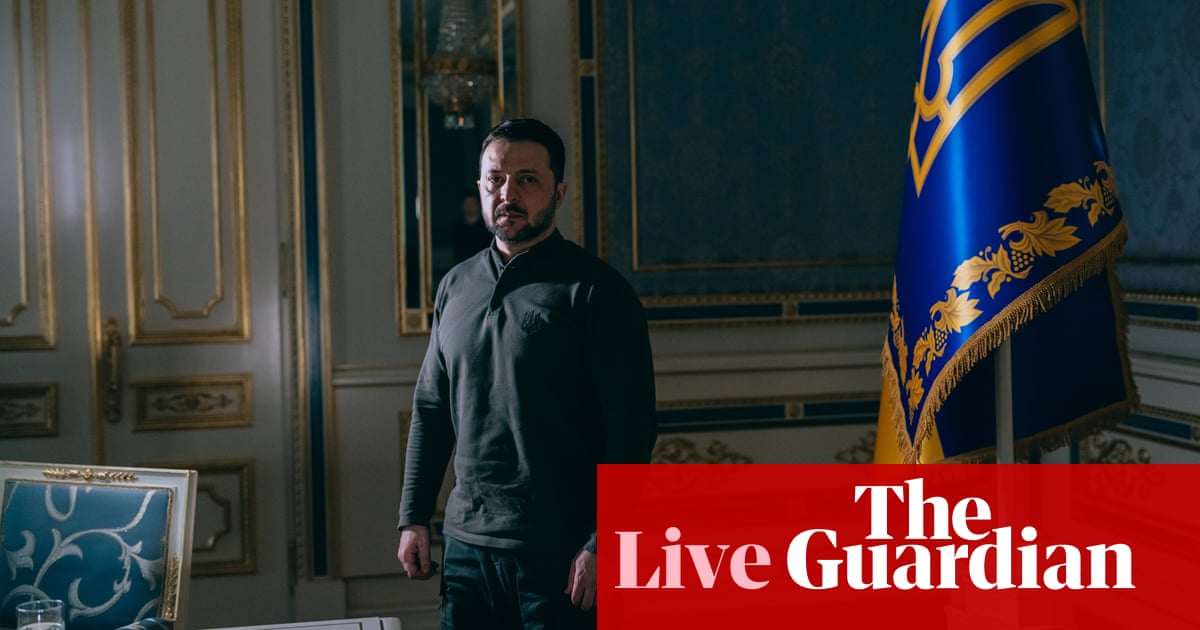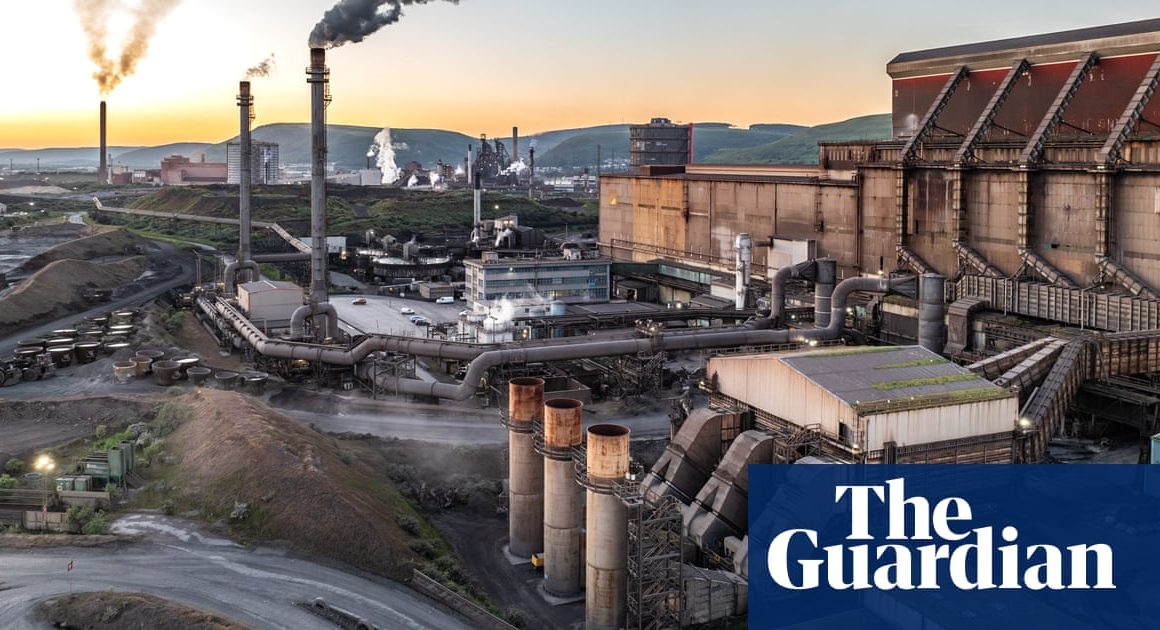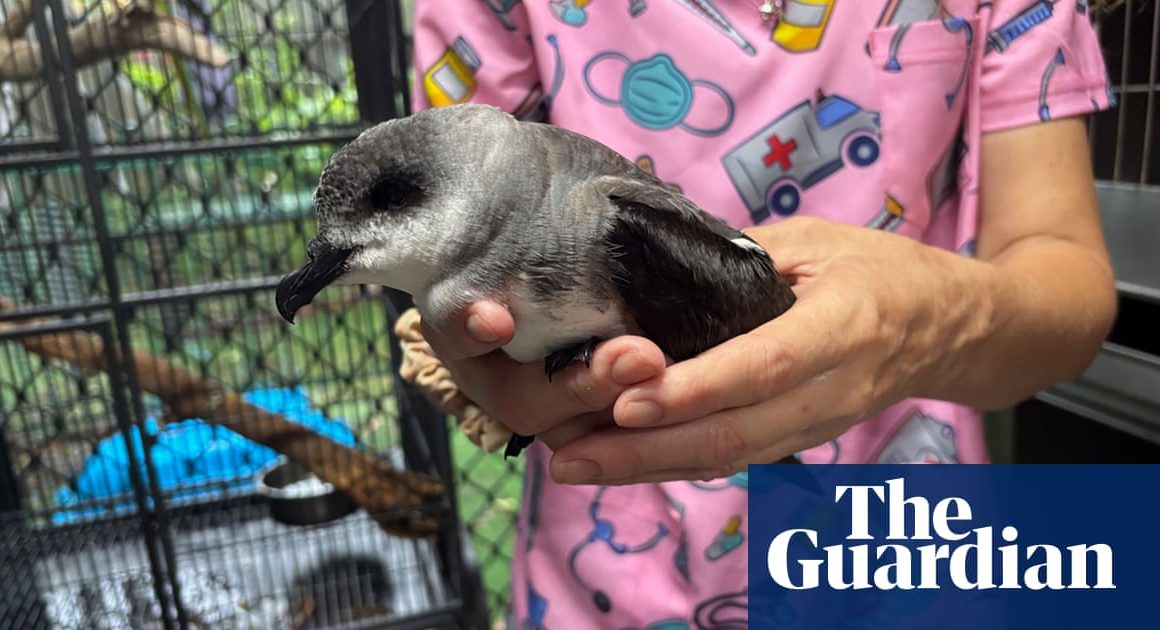Morning opening: All eyes on Ukraine

Jakub Krupa
After yesterday’s meeting on artificial intelligence, the focus now swiftly moves on to Ukraine.
Ahead of the Munich Security Conference starting on Friday, European leaders seem to be increasingly anxious about what’s next for Ukraine ahead of the third anniversary of full-scale aggression by Russia amid repeated suggestions that the new US administration wants to end the war as soon as possible.

US president Donald Trump once again suggested overnight that some progress is being made through backchannel negotiations.
Commenting on the release of Marc Fogel, the American teacher freed from a Russian prison, he hinted that his return could advance negotiations to end the war. “We were treated very nicely by Russia, actually. I hope that’s the beginning of a relationship where we can end that war,” he said.
As my colleague Pjotr Sauer notes, Russia’s latest engagement with the US will set off alarm bells in Kyiv, where the Ukrainian president, Volodymyr Zelenskyy, must navigate the new reality of a US administration that has opened dialogue with Moscow while at times displaying open hostility toward Ukraine.
In an interview with Fox News broadcast on Monday, Trump suggested that Ukraine “may be Russian some day”, just days before his vice-president JD Vance gears up to meet Zelenskyy, later this week in Munich.
Speaking to the Guardian, Zelenskyy warned that Europe cannot guarantee Ukraine’s security without America as he sought to make a business case for helping Kyiv by suggesting opportunities for US companies in the reconstruction of postwar Ukraine and in the extraction of Ukrainian natural resources.
Today, EU foreign ministers from France, Germany, Poland, Spain and Italy will meet in Paris to discuss their plans and security guarantees for Kyiv ahead of Munich. They will be joined by senior EU commissioners, Ukraine’s foreign minister Andrii Sybiha and UK’s David Lammy.
A separate high-level meeting will take place in Brussels in the so-called Rammstein format, attended by US defence secretary Pete Hegseth. Nato defence ministers are meeting tomorrow.
The scramble comes also after a new Danish intelligence report warned about the prospect of Russia launching a large-scale war against European members of Nato within five years, if the US no longer offers its support. It’s two years before it poses a credible threat to one or more members in the Baltic sea region, it added.
Overnight, Ukraine was attacked by Russia, again, with Zelenskyy posting on social media what can only be read in this context as a call for action and unity:
This Russian terror against Ukraine will not stop on its own.
Putin is not preparing for peace – he continues to kill Ukrainians and destroy cities.
Only strong actions and pressure on Russia can put an end to this terror. Right now, we need the unity and support of all our partners in the fight for a just end to this war.

It’s Wednesday, 12 February 2025, and this is Europe live. It’s Jakub Krupa here.
Good morning.
Key events
Germany extends border controls for six months
German chancellor Olaf Scholz has just announced that Germany will extend the reinstatement of controls at all borders for six months amid a heated debate on migration ahead of the federal election in the country on 23 February.
“With the border controls, we are effectively pushing back irregular migration, the figures show this,” Scholz said, quoted by the German press.
Russia’s 2024 defence budget exceeded all of Europe’s combined, study says

Dan Sabbagh
Defence and security editor
Russia’s defence budget in 2024 exceeded all of Europe’s combined in purchasing power terms and it retains the ability to sustain its invasion of Ukraine at the current intensity for another year, according to a fresh analysis published today.
Calculations by the International Institute for Strategic Studies conclude that on a like for like basis, adjusted to take into account Russia’s lower input costs, Russia spent $462bn on defence against Europe’s $457bn.
Fenella McGerty, an analyst with the thinktank, said that Russia spent 6.68% of its GDP on defence in 2024, or $145.9bn in cash terms – and that it would increase further by 14% during 2025, a lower rate of increase than previous years.
Though Russia has lost at least 172,000 troops killed and 611,000 wounded since the start of the war – and 1,400 tanks during 2024 – recruitment and manufacturing remained sustainable.
“I think they can continue the current intensity of operations for the rest of this year,” said Ben Barry, a land warfare analyst. Nigel Gould-Davies, a former UK ambassador to Belarus, added that Russian president Vladimir Putin was hardening his position – “he’s not interested in a freezing of the conflict”.
Ukraine, meanwhile, is suffering from personnel shortages on the frontline as recruitment efforts falter. It was not uncommon for frontline units to be at 20% to 30% of target strength, the thinktank added.
Figures released by the thinktank also showed that Germany had overtaken the UK as the second biggest defence spender in Nato, after the US, during 2024, reflecting a big increase announced by chancellor Olaf Scholz in response to the war in Ukraine. All European defence budgets are up by 50% since 2014 in cash terms.
And here’s a welcome tweet from Orbán …
Hungary’s Orbán to meet AfD’s Weidel in Budapest
There is also one other high-level meeting in Europe today, on the far right, as Hungary’s prime minister Viktor Orbán is hosting the co-leader of the Alternative für Deutschland Alice Weidel to Budapest.
AFP notes that it will mark the first time that Orban, who has regularly received far-right party leaders over the years, will welcome a politician from AfD to Budapest.
The party is polling second ahead of the German federal election on 23 February, and recently won a vote in the German parliament for the first time, supporting the Christian conservatives’s motion on migration.
The talks between Orbán and Weidel will mainly focus on the “European migration crisis”, according to the Hungarian government.
The two will speak at a press conference at some point today, and I will keep an eye out for any news lines from their meetings.
But it’s clear not everyone in Budapest is happy to see her there.
Western Africa to Canary Islands remains most active route for irregular migration in Europe, EU’s external border agency says

Lisa O’Carroll
in Dublin
Irregular migration from western Africa to the Canary Islands remained the most active route in Europe in January, new figures from the EU’s external border agency, Frontex, show.
Despite a year on year decline of 34% in numbers nearly 5,000 attempted the perilous boat journey.
However the Med still remains significant with more than 3,200 (up 43%) trying to cross to Italy while the Eastern Mediterranean was the second most active route with almost 3,500 arrivals via Turkey.
On the Channel route, the number of detections of people seeking to cross into the United Kingdom fell by more than a fifth from a year ago to slightly above 2,500.
US defence secretary Hegseth meeting with UK’s Healey
In the opening, I mentioned a Brussels meeting of the Ukraine Defence Support Group, chaired today by the UK.
US defence secretary Pete Hegseth has just met with his British counterpart, John Healey, at the start of their talks today.
Trump’s US merely a ‘necessary partner,’ less a true ally, Europeans say
Donald Trump’s return to the White House has sparked a “remarkable shift” in Europeans’ view of the US, according to a survey, with even the most America-friendly no longer seeing Washington primarily as an ally.
The polling, of 11 EU member states plus Ukraine, Switzerland and the UK, found most people now regard the US as merely a “necessary partner” – even in countries such as Poland and Denmark that barely 18 months ago had considered the US an ally.
An average of 50% of Europeans across the member states surveyed view the US this way, the study revealed, with an average of only 21% seeing it as an ally, leading the report’s authors to urge a more “realistic, transactional” EU approach.
Jon Henley has the full story.
Morning opening: All eyes on Ukraine

Jakub Krupa
After yesterday’s meeting on artificial intelligence, the focus now swiftly moves on to Ukraine.
Ahead of the Munich Security Conference starting on Friday, European leaders seem to be increasingly anxious about what’s next for Ukraine ahead of the third anniversary of full-scale aggression by Russia amid repeated suggestions that the new US administration wants to end the war as soon as possible.
US president Donald Trump once again suggested overnight that some progress is being made through backchannel negotiations.
Commenting on the release of Marc Fogel, the American teacher freed from a Russian prison, he hinted that his return could advance negotiations to end the war. “We were treated very nicely by Russia, actually. I hope that’s the beginning of a relationship where we can end that war,” he said.
As my colleague Pjotr Sauer notes, Russia’s latest engagement with the US will set off alarm bells in Kyiv, where the Ukrainian president, Volodymyr Zelenskyy, must navigate the new reality of a US administration that has opened dialogue with Moscow while at times displaying open hostility toward Ukraine.
In an interview with Fox News broadcast on Monday, Trump suggested that Ukraine “may be Russian some day”, just days before his vice-president JD Vance gears up to meet Zelenskyy, later this week in Munich.
Speaking to the Guardian, Zelenskyy warned that Europe cannot guarantee Ukraine’s security without America as he sought to make a business case for helping Kyiv by suggesting opportunities for US companies in the reconstruction of postwar Ukraine and in the extraction of Ukrainian natural resources.
Today, EU foreign ministers from France, Germany, Poland, Spain and Italy will meet in Paris to discuss their plans and security guarantees for Kyiv ahead of Munich. They will be joined by senior EU commissioners, Ukraine’s foreign minister Andrii Sybiha and UK’s David Lammy.
A separate high-level meeting will take place in Brussels in the so-called Rammstein format, attended by US defence secretary Pete Hegseth. Nato defence ministers are meeting tomorrow.
The scramble comes also after a new Danish intelligence report warned about the prospect of Russia launching a large-scale war against European members of Nato within five years, if the US no longer offers its support. It’s two years before it poses a credible threat to one or more members in the Baltic sea region, it added.
Overnight, Ukraine was attacked by Russia, again, with Zelenskyy posting on social media what can only be read in this context as a call for action and unity:
This Russian terror against Ukraine will not stop on its own.
Putin is not preparing for peace – he continues to kill Ukrainians and destroy cities.
Only strong actions and pressure on Russia can put an end to this terror. Right now, we need the unity and support of all our partners in the fight for a just end to this war.
It’s Wednesday, 12 February 2025, and this is Europe live. It’s Jakub Krupa here.
Good morning.












